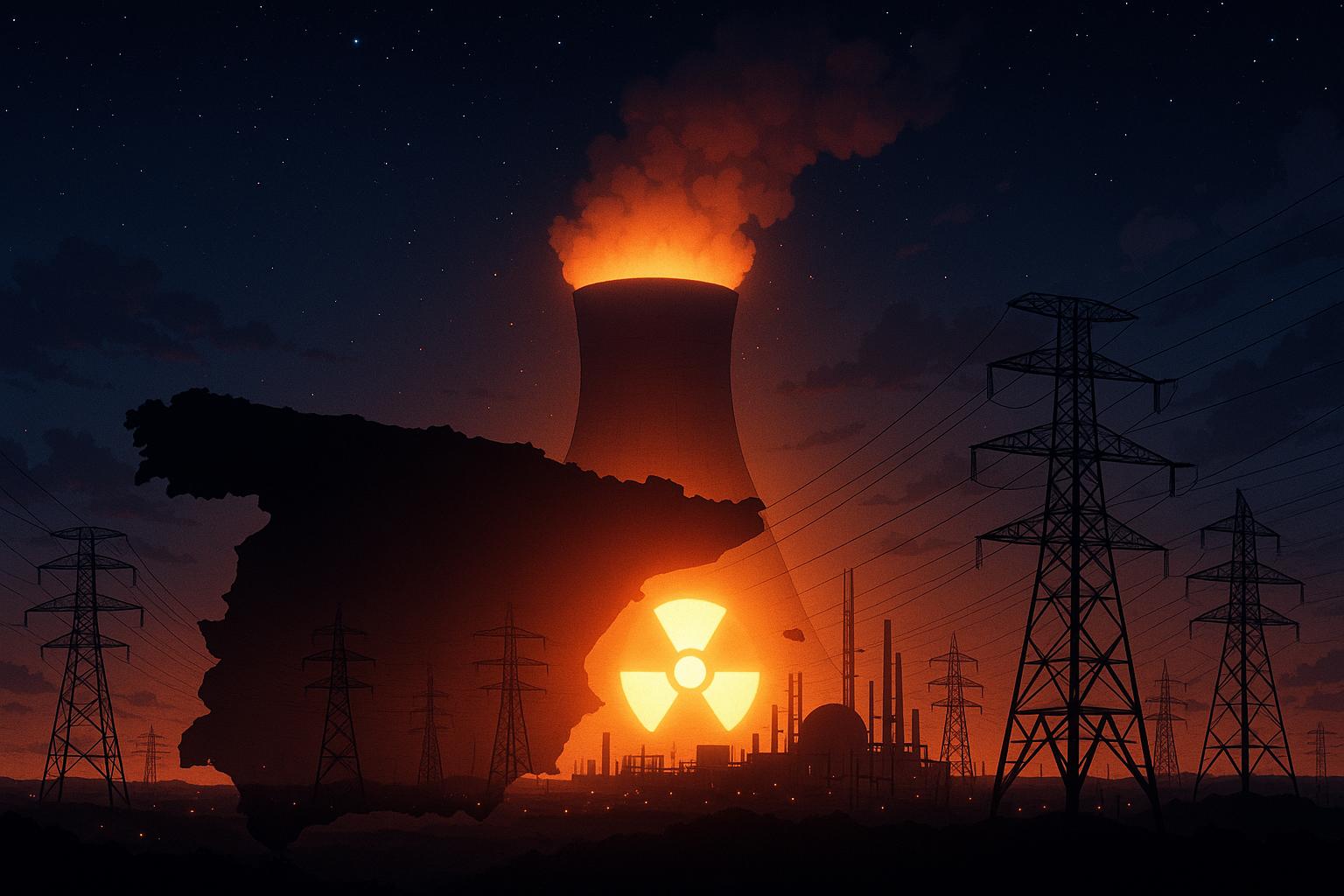Last month, millions across the Iberian Peninsula were plunged into darkness in what has been termed Europe’s largest power blackout in decades. This unprecedented event has reignited a fiery debate concerning the continent's renewable energy policies and the place of nuclear power within them. With many attributing the systemic failure to Spain's heavy reliance on green energy sources, the immediate political fallout has thrust nuclear power back into the spotlight as a potential remedy for energy stability.
On the day of the blackout, Spain's energy grid was generating approximately 70% of its power from renewable sources. While this figure underscores the country's commitment to clean energy, it has also raised questions about the reliability of such an energy system when confronted with unexpected challenges. Experts have indicated that the loss of traditional energy sources, particularly large-scale generation capacities like nuclear and coal, can destabilise the grid. Yolanda Moratilla, chairperson of the Committee on Energy and Natural Resources at the Engineering Institute of Spain, remarked that the blackout was "technically highly unlikely" and might never be fully explained, highlighting the risks associated with the ongoing shift away from conventional energy production.
As the dust settles on the incident, political leaders are grappling with the implications of continuing to phase out nuclear energy. Spain's Prime Minister, Pedro Sánchez, steadfastly defended the renewable energy strategy in parliament, categorically stating, “There was no problem caused by an excess of renewable energy.” However, this perspective is not universally accepted. Critics are calling for a reconsideration of the decision to close Spain's seven remaining nuclear reactors by 2035, arguing that such moves could mirror Germany’s recent energy challenges post-nuclear phase-out. Ignacio Galán, chairman of Iberdrola, warned that electricity prices could soar by over 25% if Spain repealed its nuclear commitment, a scenario that could destabilise the energy market further.
The pressures are mounting, especially as demand for energy continues to grow. Proponents of nuclear energy are leveraging this moment to rethink energy policies across Europe. Indeed, nations like Germany, under new Chancellor Friedrich Merz, are reevaluating their nuclear stances. Merz has mocked his predecessors' decision to shutter the last three nuclear plants amidst Europe’s energy crisis, promising investments in new nuclear technologies including small modular reactors (SMRs).
The appetite for a nuclear renaissance isn’t limited to Europe. In Australia, a recent government decision to lift a long-standing ban on nuclear generators has been met with support. The coalition government plans to invest significantly in nuclear projects, aiming to address energy security as global demand surges. Similar discussions are taking place in Taiwan, where voters will soon decide on whether to restart a nuclear reactor shut down weeks prior due to the pressing energy needs of its semiconductor industry.
Furthermore, the United States is witnessing a renewed focus on nuclear energy, particularly as tech giants scramble for reliable energy sources to power AI data centres. Dealings have emerged, like the recent agreement permitting the Three Mile Island site to restart operations, aiming to cater to the growing electricity demands from companies such as Microsoft. Analysts at Goldman Sachs have noted that this demand has led to a proliferation in nuclear interest, with several tech companies actively pursuing contracts for new nuclear capacities.
Despite the renewed momentum for nuclear energy, sceptics remain wary, particularly regarding the management of nuclear waste and the historical pitfalls of budget overruns and delays associated with conventional nuclear projects. Dr Doug Parr from Greenpeace UK cautioned against over-reliance on what he referred to as “nuclear industry spin,” especially considering the lack of operational SMRs to date.
As the discussions around energy transition continue, the pattern emerging is clear: nations grappling with balancing renewable energy aspirations and the need for stable, reliable power sources are increasingly turning to nuclear. The call for action is echoed across political and industrial spheres, with a shared recognition that without reliable base-load power, the continent's energy security remains at serious risk.
In Spain, the reverberations from last month's blackout are yet to fully unfold, but they underscore a pressing reality: navigating the energy transition requires robust dialogue about the future of nuclear energy. While the political landscape shifts and opinions diverge, one thing remains certain—the intersection of political will, public sentiment, and technological innovation will dictate the course of Europe’s energy future.
Reference Map:
- Paragraph 1 – [1], [4]
- Paragraph 2 – [1], [6]
- Paragraph 3 – [5], [3]
- Paragraph 4 – [2], [3]
- Paragraph 5 – [7], [4]
- Paragraph 6 – [6], [5]
- Paragraph 7 – [1], [2], [6]
- Paragraph 8 – [3], [5]
- Paragraph 9 – [3], [6]
- Paragraph 10 – [1], [6]
Source: Noah Wire Services
